Tricuspid Valve Stenosis — Percutaneous Balloon Valvuloplasty: treatment in the Best Hospitals of Germany
Treatment prices are regulated by national law of the corresponding countries, but can also include additional hospital coefficients. In order to receive the individual cost calculation, please send us the request and medical records.
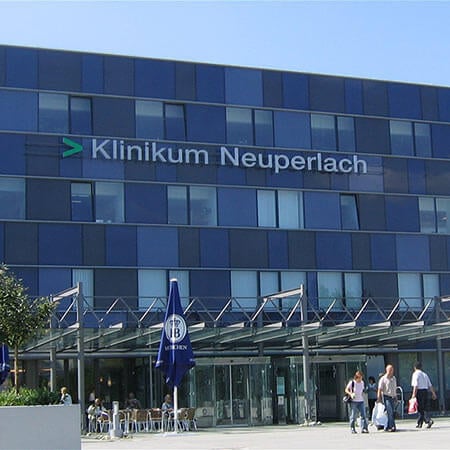
Department of Cardiology and Pulmonology
The Department of Cardiology and Pulmonology provides the full range of diagnostic and therapeutic services for patients with diseases of the cardiovascular system and lungs. In the field of cardiology, key attention is paid to the treatment of valvular heart disease, arrhythmias, heart failure, coronary artery disease, arterial hypertension and aortic diseases. The department's pulmonologists mostly deal with the treatment of pneumonia, bronchial asthma and chronic obstructive pulmonary disease. In addition, the department operates an Intensive Care Unit, within which patients can receive artificial ventilation, renal replacement therapy and procedures for maintenance of blood flow. The department's Chest Pain Unit is certified by the German Cardiac Society and provides medical care to patients with acute coronary syndrome. The department successfully uses in its clinical practice both proven classical treatments and innovative medical achievements, which are available only in leading European hospitals. The department's medical team provides treatment to more than 3,200 patients every year.


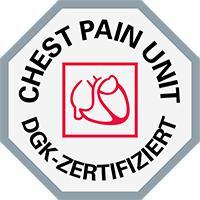
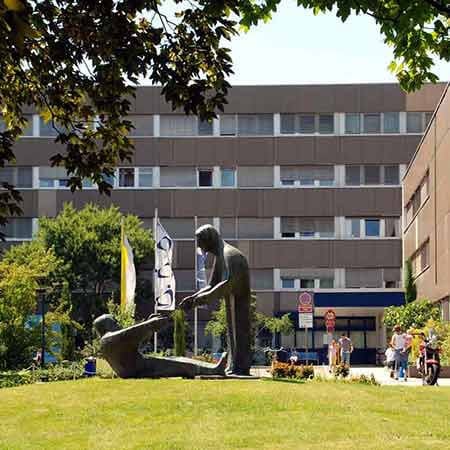
Department of Cardiology and Angiology
The Department of Cardiology and Angiology offers the full range of medical services in the fields of its competence. The department's doctors specialize in the treatment of congenital and acquired heart defects. The key focus is on catheter-based heart interventions, which are characterized by a minimal trauma rate and allow patients to avoid an open operation. For this purpose, the department has three modern Cardiac Catheterization Laboratories. The department also houses an Intensive Care Unit and a Chest Pain Unit for patients with acute coronary syndrome. The medical facility has 82 beds. The department was awarded the prestigious quality certificate from the German Cardiac Society (DGK) for outstanding results in the treatment of mitral valve diseases and acute coronary syndrome. Another important area of work of the department's physicians is comprehensive heart examinations for the prevention of heart disease. For this purpose, specialized Check Up Programs have been developed here, which include an optimal set of diagnostic tests. The medical facility employs a highly professional team of doctors and nursing staff, which makes every effort to provide each patient with effective medical care in a pleasant and comfortable atmosphere.
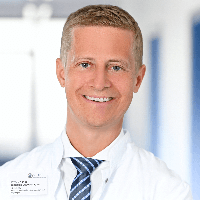

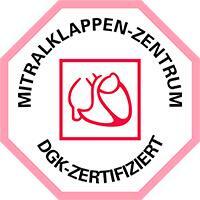
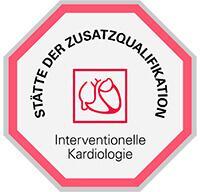


Department of Cardiology and Angiology
The Department of Cardiology and Angiology offers the full range of medical services in the areas of its specialization. The medical facility holds consultations and carries out the diagnostics and treatment of diseases of the heart and blood vessels. The department's team of cardiologists focuses on patients with valvular heart disease, heart rhythm disturbances, coronary artery disease, heart failure, and congenital heart disease. The department has a Chest Pain Unit certified by the German Cardiac Society (DGK) for the treatment of acute coronary syndrome. In the field of angiology, of key interest is the treatment of peripheral arterial occlusive disease, vascular stenosis of various locations, including carotid artery stenosis, and deep vein thrombosis. During the treatment of diseases of the heart and blood vessels, the department’s specialists use various drug therapy regimens and perform image-guided interventional procedures. The medical facility has been recognized with quality certificates for transcatheter aortic valve implantation (TAVI) and treatment of heart failure and mitral valve disease. Patients are treated by highly qualified physicians who strive to restore the patient's health using sparing treatment methods.
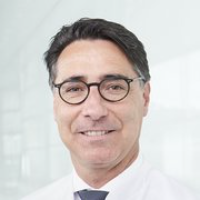





Tricuspid stenosis is the most rare valvular heart disease. The condition is usually of rheumatic origin. In most cases, stenosis is accompanied by tricuspid insufficiency. The tricuspid valve is rarely affected alone because it is mainly affected together with the mitral valve and sometimes with other heart valves. Open surgeries and minimally invasive procedures are performed to treat the disease in Germany.
Content
- What is balloon valvuloplasty?
- Comparison of balloon valvuloplasty with valve replacement
- When can balloon valvuloplasty be used?
The procedure is performed through the femoral vessels under X-ray guidance. Doctors insert a balloon into the heart through a femoral vein and inflate it with fluid. The balloon expands and increases the area of the tricuspid valve by 1-2 square centimeters, eliminating or reducing the severity of the stenosis.
You can seek medical attention at the University Hospital Essen, the University Hospital Oldenburg, or the University Hospital Ulm.
We will take care of all the arrangements for your trip. Please leave your request on the Booking Health website to get advice from medical tourism specialists. We will contact you in the next 24 hours, help you choose a clinic, make an appointment on your preferred dates, and fully organize your trip. When you make your treatment appointment through the Booking Health company, treatment will cost you less due to the absence of high taxes for foreign patients.
What is balloon valvuloplasty?
Endovascular tricuspid valve repair is a minimally invasive procedure that is performed through an incision in the femoral artery in the groin. Cardiosurgery doctors insert one or two balloons into the vascular bed, which are delivered to the heart through the veins.
The balloon is placed in the region of the tricuspid valve. An X-ray-guided injection of saline with a contrast agent is then carried out. The balloon increases in volume and separates the fused heart valve leaflets, increasing the area of the tricuspid valve.
Comparison of balloon valvuloplasty with valve replacement
The advantages of balloon valvuloplasty over heart valve replacement surgery are the following:
- a minimal trauma rate;
- a short recovery time;
- a low risk of complications.
The disadvantage of the procedure is its inability to eliminate valvular insufficiency if it accompanies stenosis, and even its potential aggravation.
When can balloon valvuloplasty be used?
Percutaneous valvuloplasty is not considered the main treatment for stenosis. This is because it is usually accompanied by heart valve insufficiency, and the procedure often exacerbates the insufficiency. In addition, most patients with tricuspid stenosis have other valvular pathologies that require surgical repair.
This is why open surgery is the most common procedure for tricuspid stenosis. It is aimed at heart valve replacement, but less often, this surgical procedure can be used for heart valve reconstruction. The manipulations on other heart valves can be performed simultaneously. Most often, this is mitral valve reconstruction.
Percutaneous balloon valvuloplasty in Germany can be performed in the following cases:
- severe symptomatic tricuspid stenosis;
- no damage to other heart valves;
- absence of tricuspid insufficiency;
- a patient from a high surgical risk group (in the presence of concomitant diseases that make open surgery unsafe).
You can undergo your tricuspid valve stenosis treatment in Germany and expect high success rates for the procedure. You are welcome to choose the most suitable hospitals with cardiosurgery departments, find out the cost of treatment, and select a medical care program at a favorable price on the Booking Health website. We will help you find clinics with good cardiosurgery departments in Germany and arrange your trip.
Authors:
The article was edited by medical experts, board-certified doctors Dr. Nadezhda Ivanisova and Dr. Vadim Zhiliuk. For the treatment of the conditions referred to in the article, you must consult a doctor; the information in the article is not intended for self-medication!
Sources:

